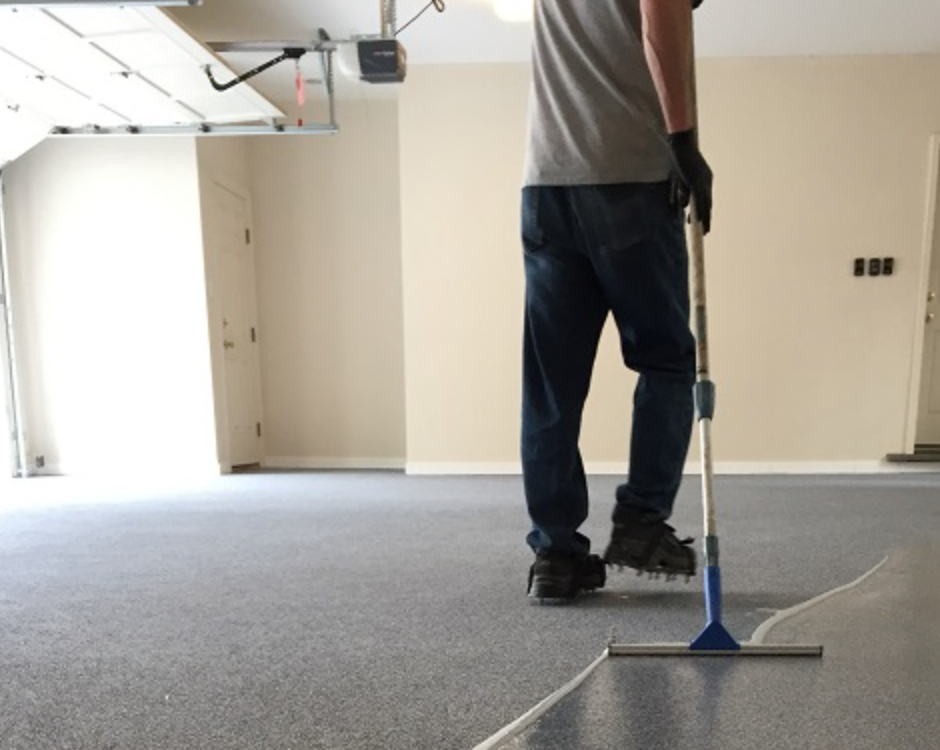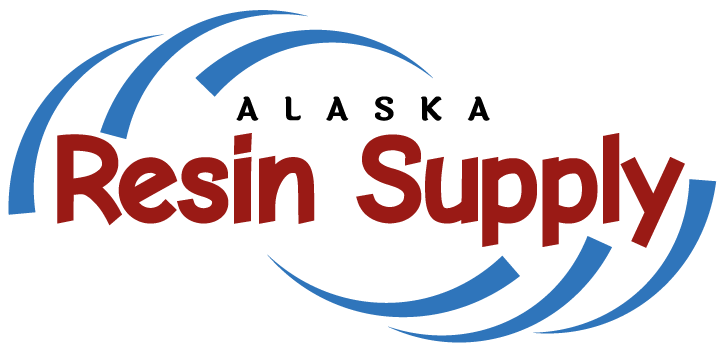Epoxy floor coverings have become very popular over the last several years. A variety of Do-It-Yourself (DIY) epoxy flooring kits are available at most major retail locations. These kits attract people with their low prices. However, there are several disadvantages to kits that you will want to be aware of.

DIY kits are designed for amateur installers because they are inexpensive and the epoxies included have a longer working time or pot life—which gives more time to apply the coating without it hardening up too fast. Unfortunately, that old saying, “You get what you pay for” applies. Low-quality kits can cause multitudes of problems, and do not offer the same benefits as professional epoxy coatings.
The difference between professional products and DIY kits is extreme. One major disadvantage of kits is their recommended surface preparation. Epoxy flooring requires correct surface preparation to succeed. A key is testing for moisture vapor transmission—high moisture content in concrete can cause epoxy flooring to disbond. DIY kits have no moisture tests—and only a diluted acid wash to clean concrete. This acid wash is highly inadequate to ensure successful bonding.
Proper surface preparation requires the correct equipment. Diamond grinding is the best way to profile or open the pores of concrete. Opened pores allow epoxy to bond securely to concrete which is critical to the longevity of your floor. Then, prior moisture testing confirms whether or not an additional barrier epoxy primer needs to be applied before installing your epoxy system to prevent disbondment from moisture. Poorly bonded coatings will chip and peel over time.
Another major disadvantage of DIY kits is their low percentage of solids. A typical DIY kit has around 30% solids. Part of the reason for the low solids content is to keep costs low. The other reason is the fewer solids in the product, the longer it will stay liquid. This makes it easier for inexperienced people to apply. A professional product will have 90% to 100% solids.
What does this mean for you?
The thickness of the flooring that remains after the epoxy has finished drying is the solids. This means the lower the percentage of solids in an epoxy product, the thinner the epoxy film is after curing. Low-quality epoxy floors produced by a kit will not last long. Additionally, kits typically do not have much square foot coverage. Homeowners often stretch the product to cover the floor completely, but it results in an even thinner coating.
Low-quality garage epoxy kits are often not durable enough to withstand Alaskan vehicle studded tires and may fail in areas where vehicles are frequently parked. They also have poor resistance to spilled chemicals and fluids. Motor oil and brake fluid can degrade these coatings, causing the flooring to separate from the concrete. One of the main purposes for many people to install epoxy flooring in their garage is to protect it from oil, gas, chemicals, and moisture. High-quality epoxy can protect you from mold and mildew as well.
Professional installers use 100% solids epoxy. These epoxies maintain the same level of thickness between the time they are applied and the time they are fully cured. Professional products produce a much more durable coating that will stand up to abuse.
In addition to having less durability, these lower-quality epoxies have a much harsher odor. Epoxy products that are not 100% solids have been “cut” with a solvent. Solvents include Volatile Organic Compounds (VOCs) which cause the epoxy to be much harsher to work with and may require both ventilation and respirators.
When choosing flooring to install in your home, always consider the final look and feel you will achieve from your efforts. DIY kits are very limited in color and texture options. At Alaska Resin Supply, we offer a variety of metallic color pigments, and vinyl chip/flake that will make your project look beautiful and unique.
Are you concerned that your epoxy flooring will be slippery when wet? Most garage epoxy kits only provide a small amount of flake that provides very little coverage. A full broadcast flake is recommended for garage floors. This helps increase the anti-slip properties by adding plenty of texture. Additives can also be put into the topcoat to increase its anti-slip properties.
In the end, a professionally installed epoxy floor will outlast a DIY kit application by years. At Alaska Resin Supply, we have the equipment, knowledge, and experience to get the job done right. Our installation affiliate, GH Alaska LLC, uses the highest quality materials on epoxy flooring installations. Contact us today for a free installation quote.
If you would still prefer to do your own installation, Alaska Resin Supply also offers all the tools and materials you need to get a high-quality result. We provide a wide variety of concrete diamond grinders for rental or sale and have a full professional epoxy resin line available with all the colors and additives you could need. Call us at (907) 671-9900 or visit us at 201 E. Swanson Ave. Suite #1, Wasilla.
View this article on MakeASceneak.com: https://www.makeasceneak.com/january-2022/disadvantages-and-limitations-of-diy-epoxy.
